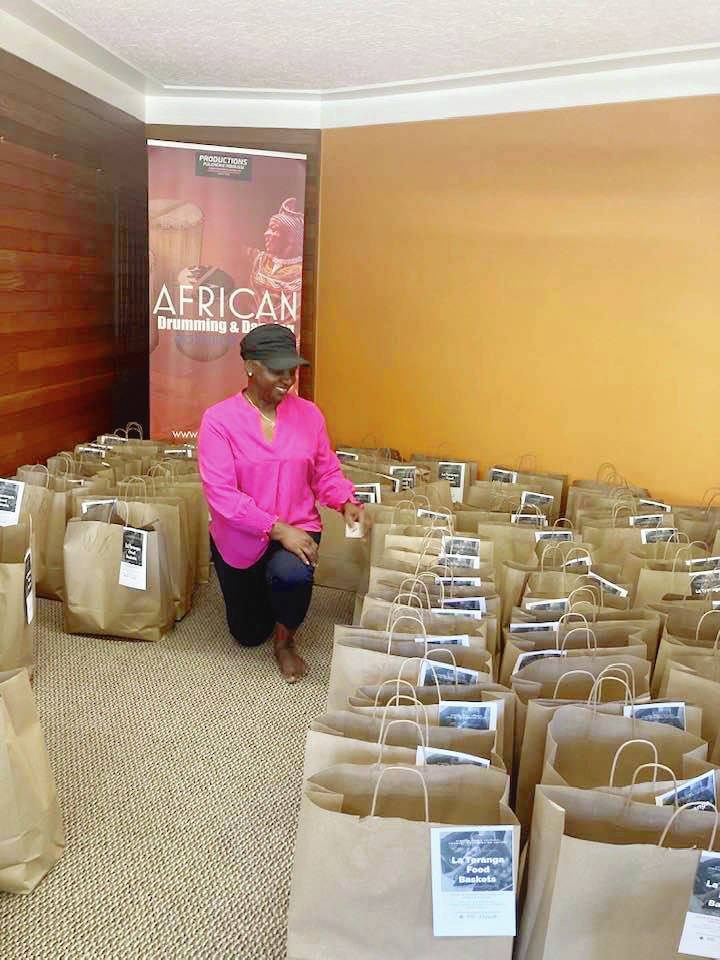Every Thursday, volunteers at the Issamba Centre hand out dozens of culturally-relevant baskets to people in Victoria’s African-Caribbean community.
Last week, the demand was so high, some people left without baskets filled with cassava flour, African yams, plantains and other staples.
Boma Brown, program manager for the centre, which is run by the African Arts and Cultural Society, said the level of need is reflective of the fact that Black communities and people of colour have been hardest hit by the pandemic.
“We know that members of the African-Caribbean community have been experiencing financial difficulties due to loss of work, and with that comes increased food insecurity,” said Brown, founder of the Support Network for Indigenous Women & Women of Colour.
In August, provincial health officer Dr. Bonnie Henry said the province’s COVID-19 population health survey found that the pandemic exposes inequities in society as it takes more of a toll on people of colour.
According to the survey, completed by about 395,000 British Columbians, respondents who identified as West Asian, Latin American, South Asian, Southeast Asian and Black were the most likely to report difficulties in meeting financial needs. West Asian, Latin American and Black respondents were the most likely to report not working because of COVID-19.
“That’s in line with what we’re hearing from people who come to the centre, is that they’ve been hit hard, especially with job losses,” Brown said.
Brown said she’s heard from refugees and international students looking for work and parents who are struggling to provide for extended family members now living with them because they were not able to travel back to their home country due to travel restrictions.
“We want to be able to provide food supplies to people who are trying to find their feet,” Brown said.
Some imported foods are prohibitively expensive and people of colour often cannot find culturally relevant items at a food bank, she said.
That’s why Issamba Centre’s executive director Pulchérie Mboussi launched La Teranga Food Basket program, funded by the Canadian Red Cross’s COVID-19 relief program. In the four weeks since the project started, volunteers have handed out 50 baskets a week to families, with an average of four people in the home, Brown said. People are asked where they’re from and the top two non-perishable items they can no longer afford to purchase, so each hamper is personalized to a person’s culture.
Volunteers are also delivering baskets to people with mobility issues and to African and Caribbean families as far away as Duncan. The Issamba Centre is also co-ordinating with an African food store in Nanaimo so families can pick up baskets there.
Brown said the Red Cross funding runs out in November, so the society is fundraising so it can keep the program going into next year.
The Issamba Centre recently received a donation from Fairway Market and is working with the Greater Victoria Food Share Network to access fresh produce. “We’re seeing so much joy from people who see we’re providing foods that are culturally relevant to them.”
People can register for the La Teranga Food Basket at issambacentre.ca.
To donate, visit issambacentre.ca/donate or gofundme.com/f/laterangafoodbaskets.



